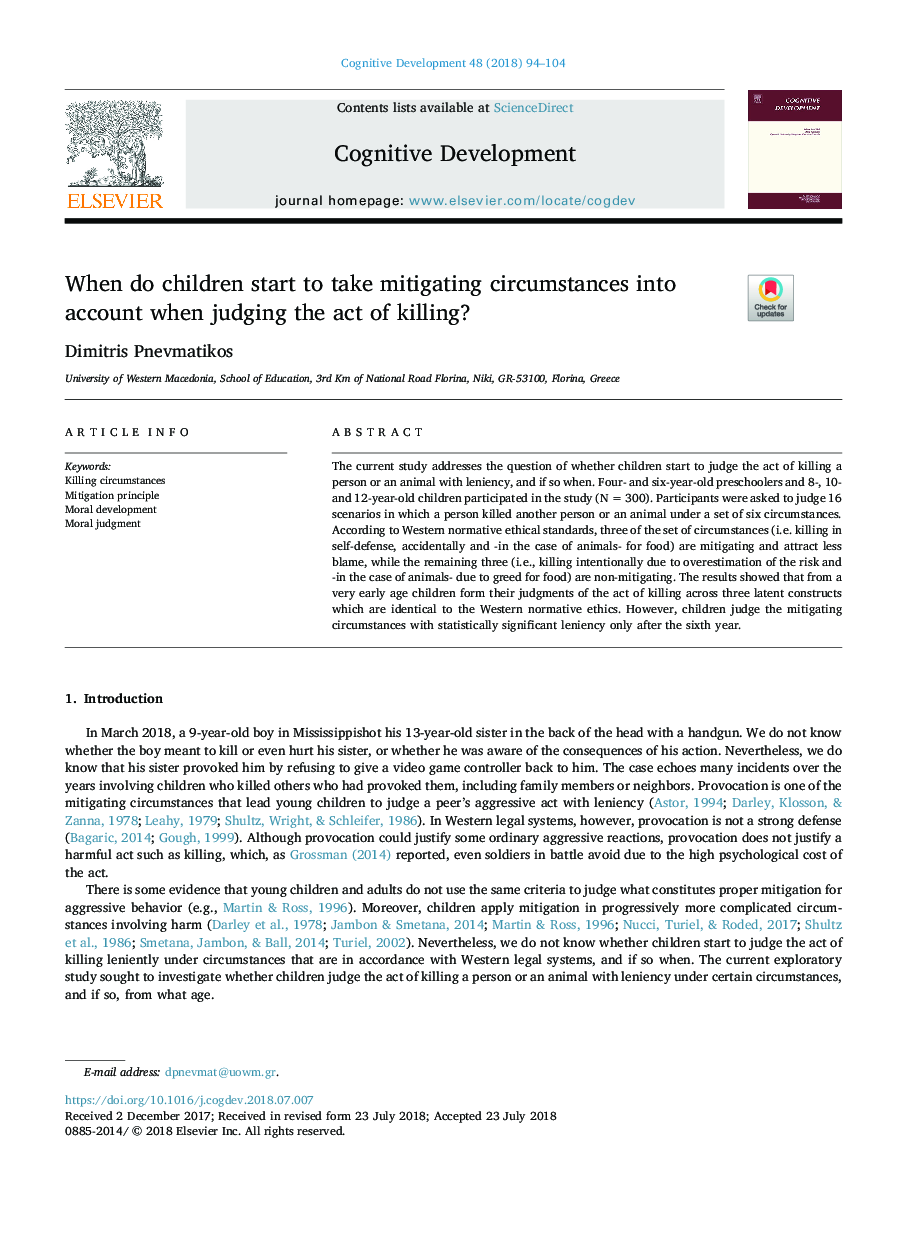| Article ID | Journal | Published Year | Pages | File Type |
|---|---|---|---|---|
| 7272034 | Cognitive Development | 2018 | 11 Pages |
Abstract
The current study addresses the question of whether children start to judge the act of killing a person or an animal with leniency, and if so when. Four- and six-year-old preschoolers and 8-, 10- and 12-year-old children participated in the study (Nâ=â300). Participants were asked to judge 16 scenarios in which a person killed another person or an animal under a set of six circumstances. According to Western normative ethical standards, three of the set of circumstances (i.e. killing in self-defense, accidentally and -in the case of animals- for food) are mitigating and attract less blame, while the remaining three (i.e., killing intentionally due to overestimation of the risk and -in the case of animals- due to greed for food) are non-mitigating. The results showed that from a very early age children form their judgments of the act of killing across three latent constructs which are identical to the Western normative ethics. However, children judge the mitigating circumstances with statistically significant leniency only after the sixth year.
Keywords
Related Topics
Social Sciences and Humanities
Psychology
Developmental and Educational Psychology
Authors
Dimitris Pnevmatikos,
